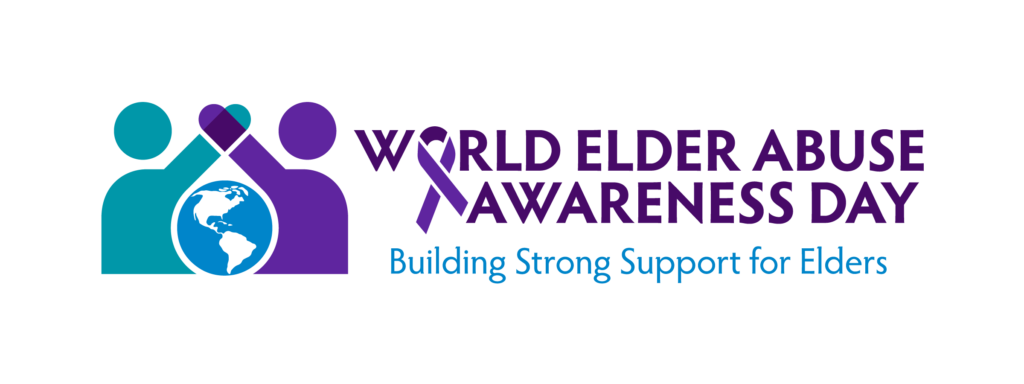
June is Elder Abuse Awareness Month. World Elder Abuse Awareness Day is June 15, and was launched 2006 by the International Network for the Prevention of Elder Abuse and the World Health Organization.
Elder abuse is a largely hidden and growing problem in the United States. It is defined by law as “an act or omission, which results in a serious physical or emotional injury to an elderly person or financial exploitation of an elderly person; or the failure, inability or resistance of an elderly person to provide for himself or herself one or more of the necessities essential for physical and emotional well-being without which the elderly person would be unable to safely remain in the community.” Elder abuse can include physical, sexual, emotional, neglect, and financial exploitation. Another form of elder abuse is self-neglect.
In Massachusetts, self-neglect is a serious and reportable component of elder abuse. Older adults who are not successfully able to care for themselves, and refuse help, are at tremendous risk of ill health and even death. Self-neglect among the elderly is a growing problem that commonly goes unreported. A survey conducted by the National Association of Professional Geriatric Care Managers found that self-neglect among seniors is the most common form elder abuse encountered by care managers. Self-neglect in older adults is a poorly understood problem with public health implications. Although lacking a standardized definition, self-neglect is characterized by profound inattention to health and hygiene.
Self-neglect is a complex issue. There are many things that can cause an elder to stop taking care of themselves including, dementia, depression, disease, poverty, and isolation. If an elder is deemed clinically capable of making their own decisions, even if there are signs of self-neglect, they can choose to refuse help, and protective services providers (such as SeniorCare’s Protective Services Department) are bound to respect that decision. For these elders who are capable of making their own choices, there may be a societal and psychological element at play.
Children and animals, whose abuse issues, unlike elder abuse, capture major media attention, are not expected to care for themselves. But an aging adult has different internal and societal pressures for self-care. They have spent their adult life not only caring for themselves, but in most cases, being responsible for the care of others. Adults moving into a phase of life where they need assistance to be independent can experience a challenge to their self-identity and self-worth. Asking for help can be emotionally and psychologically difficult.
Many older adults who experience a decline in their ability to take care of day-to-day matters fear that asking for help will lead to loss of independence and possible placement in a nursing home or other long-term care facility. The paradox is that, by accepting help, a person will become more capable of maintaining their independence and living at home. SeniorCare’s mission is to provide and coordinate services to elders and others, which enable them to continue living at home and in their communities.
If you are an aging adult and find you need a little help in order remain living in your home, call SeniorCare’s Information and Referral department to determine what help is available at 978-281-1750.
Join SeniorCare, local Councils on Aging and Police Departments, and North Shore community leaders as we raise awareness of elder abuse throughout the month of June:
- Rockport – Tuesday, June 4, 2024, 11:00 am – 1:00 pm, Five Corners
- Essex – Tuesday, June 11, 2024, 10:00 am-11:00 am, Village Square
- Manchester – Wednesday, June 12, 2024, 10:30 am-11:30 am, Town Common
- Topsfield – Thursday, June 13, 2024, 5:00 pm, Topsfield Council on Aging
- Gloucester – Friday, June 14, 2024, 11:00 am-1:00 pm, Fitz Henry Lane House parking lot (corner of Rogers Street and Harbor Loop)
- Beverly – Monday, June 17, 2024, 10:00 am-12:00 pm, Beverly Council on Aging
- Hamilton – Tuesday, June 25, 2024, 11:00 am-12:00 pm, Hamilton Council on Aging
The U.S. Department of Health and Human Services reports that an estimated 5-million older adults are abused, neglected, or exploited each year. It’s our responsibility to pay attention and help our older friends and family avoid abuse or to report it immediately if abuse is suspected.
